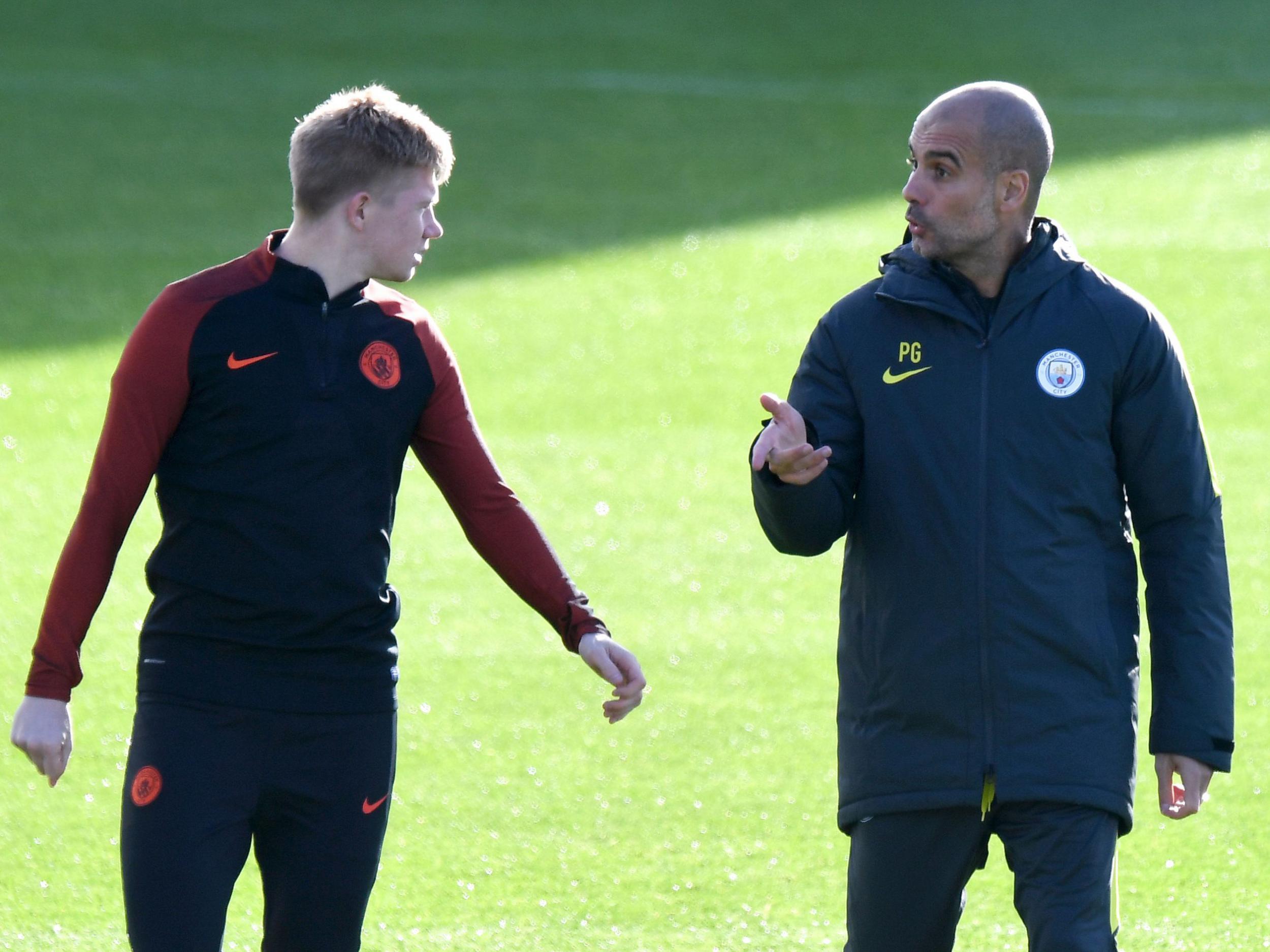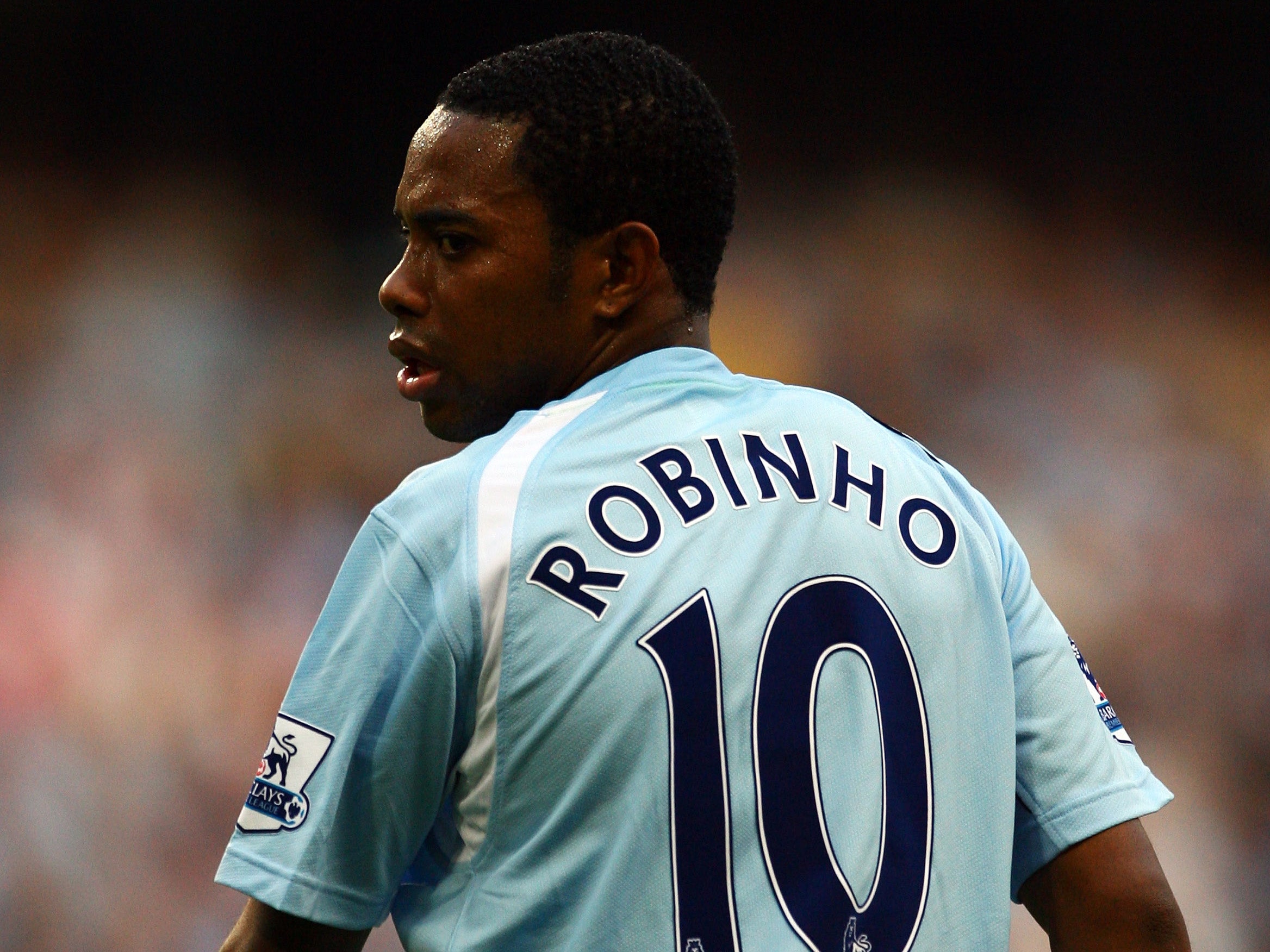Manchester City transfer strategy proves much more than just fantasy football after posting record profits
Man City announced profits for the second successive year on Tuesday morning

Your support helps us to tell the story
From reproductive rights to climate change to Big Tech, The Independent is on the ground when the story is developing. Whether it's investigating the financials of Elon Musk's pro-Trump PAC or producing our latest documentary, 'The A Word', which shines a light on the American women fighting for reproductive rights, we know how important it is to parse out the facts from the messaging.
At such a critical moment in US history, we need reporters on the ground. Your donation allows us to keep sending journalists to speak to both sides of the story.
The Independent is trusted by Americans across the entire political spectrum. And unlike many other quality news outlets, we choose not to lock Americans out of our reporting and analysis with paywalls. We believe quality journalism should be available to everyone, paid for by those who can afford it.
Your support makes all the difference.It sounds like one of those apocryphal stories, rooted in fantasy rather than fact, but as the clock ticked down to midnight on September 1, 2008, the chaos within the City of Manchester Stadium led to one of Manchester City’s frazzled administrators misinterpreting the quite natural observation by a colleague that ‘this is getting messy.’
City, hours after being taken over by Sheikh Mansour bin Zayed al Nahyan, were in the midst of a real-life fantasy football game. Efforts to thwart Manchester United’s £30.75m move for Dimitar Berbatov had narrowly failed and the attempt to hijack Chelsea’s pursuit of Robinho was by no means certain to come off.
So with the names of football’s glitterati floating around the City offices, ‘it’s getting messy,’ became ‘we’re getting Messi’ and a fax was prepared for an audacious eleventh hour bid for Barcelona’s prodigious young Argentinian.
Common sense prevailed, of course, and the fax never saw the light of day, but as City prepare to face the man they almost bid for in the Nou Camp on Wednesday, the story of the night when the club took its first steps towards the Champions League stage that they now grace offers a reminder of the huge progress that has since been made in the blue half of Manchester.
One thing is certain. It does not get messy nowadays at Manchester City.
The false steps of the early weeks and months of Abu Dhabi ownership were actually fewer than it appeared at the time.
Almost from day one, the strategy which is now bearing fruit was laid out. It was often sneered at, ridiculed and dismissed as blue-sky thinking by those with their head in the clouds.
But such has been the growth and success of the Abu Dhabi project that the announcement on Tuesday morning of the club turning a £20.5m during the last financial year passed with little fanfare.

It is the second successive year that City have posted a profit, but this year’s figures also highlight the reduction of wages to turnover from 55 per cent to 50 per cent.
Just five years ago, as the club counted the cost of its ‘accelerated acquisition strategy,’ a loss of £194.9m, when wages exceeded turnover, saw City cast as the reckless villains of the football world, determined to trample all over those elite clubs whose success and fortune had been built by years of winning on the pitch – success rarely achieved without spending big, it has to be said.
But as City prepare to face Barcelona in the Nou Camp on Wednesday, with Pep Guardiola in the blue dug-out rather than the blaugrana, chairman Khaldoon al-Mubarak insists the club “has now reached a level of sporting and commercial maturity that allows one to feed the other. It is the vision for success and sustainability that we have been working towards since 2008.”
Guardiola’s appointment in the summer, according to Khaldoon, signals a “new phase in the evolution of Manchester City,” and the reality is that the club can now face Barcelona, and Bayern Munich, and Real Madrid, and look them squarely in the eye as a major club that gets it right both on and off the pitch.
It used to be neighbours United who were held aloft as the example for all clubs to follow. Indeed, City chief executive Ferran Soriano has made little secret of how he used United as a template for Barcelona’s commercial growth during his time at the Nou Camp over a decade ago.

But City have now shown that their own blueprint can deliver results and no club in Europe has made such strides in such a relatively short period of time. Paris Saint-Germain may dominate French football on the back of Qatari investment, but their infra-structure and training facilities still lag behind City’s.
Uefa’s abandonment of their Financial Fair Play regulations has helped, of course, but City have long been determined to follow a sustainable financial model.
Back in the summer of 2012, moves for Robin van Persie and Eden Hazard were aborted by the club, much to Roberto Mancini’s annoyance, due to the costs of acquiring the two players – resale value in Van Persie’s case and wage demands in Hazard’s.

Instead, money has been invested in emerging talent such as Raheem Sterling and Kevin De Bruyne, Leroy Sane and John Stones, while the construction of the world-class City Football Academy training facility in east Manchester has taken the club to another level.
City’s under-age teams are out-performing their rivals – national champions at five age-groups last year – and their women’s team are now the best in the country and pursuing glory in their own Champions League.
With club revenues (£391.8m) now second only to United in the Premier League, the growth off the pitch is now matching the strides taken on it during the Abu Dhabi era.
Back in the early days of Sheikh Mansour’s ownership, then-chief executive Garry Cook – whose contribution to the current picture should not be overlooked – was so exasperated by the sight of fans queuing for tickets in the rain that he ordered a shelter to be provided to ensure the club’s supporters could at least avoid a soaking before they exchanged their cash for tickets to the game.
That glitch was solved pretty quickly, along with others, and a sign of the progress made is that, on Wednesday evening, getting wet in the exposed seats on the top tier of the Nou Camp will be the only concern should it rain in Catalonia.
On August 31, 2008, every City supporter would have happily taken a soaking while watching their team play for Champions League points in the Nou Camp.
Join our commenting forum
Join thought-provoking conversations, follow other Independent readers and see their replies
Comments